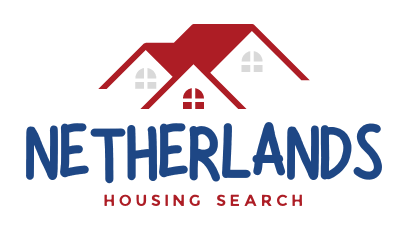⚡ Quick Navigate This Post:
Introduction
Why finding student accommodation in the Netherlands is important
Finding student accommodation in the Netherlands is important for several reasons. Firstly, the demand for student housing in popular cities like Amsterdam and Rotterdam is high, and the supply is limited. Therefore, it is crucial for students to start their search early to secure a place to live. Additionally, living in student accommodation provides a unique opportunity to immerse oneself in the local culture and make friends with fellow students. It also offers convenient access to university campuses and other amenities. Finally, finding suitable accommodation ensures a comfortable and conducive environment for studying and focusing on academic pursuits. Overall, finding student accommodation in the Netherlands is a crucial step in ensuring a successful and enjoyable academic experience.
Challenges faced by international students
International students face several challenges when it comes to finding accommodation in the Netherlands. One of the main challenges is the high demand for student housing, which often exceeds the available supply. This leads to intense competition among students, making it difficult to secure a suitable place to live. Additionally, international students may also face language barriers and cultural differences when navigating the housing market. Understanding the local rental system and knowing where to look for accommodation can be overwhelming for students who are new to the country. Despite these challenges, there are resources and support services available to help international students find suitable accommodation and make their transition to living in the Netherlands smoother.
Overview of the article
In this article, we will provide an overview of the different aspects to consider when looking for student accommodation in the Netherlands. We will discuss the importance of starting the search early, understanding the different types of accommodation available, and considering factors such as location, budget, and amenities. Additionally, we will provide tips on how to navigate the rental process, including finding reliable sources, understanding rental contracts, and dealing with potential challenges. By the end of this article, readers will have a comprehensive understanding of the key factors to consider and the necessary steps to take when searching for student accommodation in the Netherlands.
Researching Accommodation Options
Types of student accommodation available
There are various types of student accommodation available in the Netherlands to suit different preferences and budgets. One popular option is student dormitories, which are affordable and provide a social and communal living experience. Another option is shared apartments, where students can split the rent and expenses with roommates. For those who prefer more privacy, private studios or apartments are also available. Additionally, some universities offer on-campus housing options, which can be convenient for students. It is important for students to consider their needs and preferences when choosing the type of accommodation that best suits them.
Pros and cons of each option
When it comes to finding student accommodation in the Netherlands, there are several options available, each with its own pros and cons. One option is to live in a student dormitory. This can be a great choice for those who want to be surrounded by other students and have a sense of community. However, dormitories can be quite noisy and lack privacy. Another option is to rent a room in a shared house or apartment. This allows for more independence and privacy, but it can also be more expensive. Finally, some students choose to rent a studio or apartment on their own. This offers the most privacy and independence, but it can also be the most expensive option. Ultimately, the best choice will depend on individual preferences and budget constraints.
Factors to consider when choosing accommodation
When choosing accommodation as a student in the Netherlands, several factors must be considered. Firstly, location plays a crucial role. It is important to find accommodation that is close to your university or college, as this will save you time and money on commuting. Secondly, budget is another important factor. You need to determine how much you can afford to spend on accommodation and find options that fit within your budget. Additionally, safety and security should be taken into account. Look for accommodations with proper security measures to ensure your safety. Lastly, consider the amenities and facilities offered by the accommodation. Are there laundry facilities, communal spaces, or study areas available? Taking all these factors into consideration will help you find the perfect student accommodation in the Netherlands.
Budgeting and Financial Considerations
Understanding the cost of living in the Netherlands
Understanding the cost of living in the Netherlands is essential when searching for student accommodation. The cost of living in the country can vary depending on the city and region. Expenses such as rent, groceries, transportation, and leisure activities should be taken into consideration. It is important for students to create a budget and allocate funds accordingly. Additionally, researching and comparing prices of different accommodation options can help students find affordable and suitable living arrangements. By understanding the cost of living, students can make informed decisions and ensure their accommodation choice aligns with their financial capabilities.
Setting a budget for accommodation
Setting a budget for accommodation is a crucial step when looking for student accommodation in the Netherlands. It is important to determine how much you can afford to spend on rent each month and stick to that budget. Consider your income, any financial aid or scholarships you may have, and other expenses such as utilities and groceries. Research the average rental prices in the area you are interested in and factor in additional costs such as security deposits and agency fees. By setting a budget, you can ensure that you are financially prepared and find accommodation that fits within your means.
Financial assistance options for students
When it comes to finding student accommodation in the Netherlands, financial assistance options are available to help ease the financial burden. Students can explore various options, such as scholarships, grants, and student loans, to support their housing needs. Scholarships are a great way to receive financial aid based on academic achievements or other criteria. Conversely, grants are typically awarded based on financial need and can help cover the cost of accommodation. Students can also consider applying for student loans, which can provide the necessary funds to secure suitable accommodation. It is important for students to research and understand the different financial assistance options available to them in order to make informed decisions and ensure a smooth transition into their new living arrangements.
Searching for Accommodation
Online platforms and resources
When it comes to finding student accommodation in the Netherlands, online platforms and resources can be extremely helpful. There are several websites and apps specifically designed to connect students with available housing options. These platforms allow students to search for accommodation based on their preferences, such as location, price range, and amenities. They also provide detailed information about each listing, including photos, descriptions, and contact details. Additionally, online resources such as student forums and social media groups can be valuable sources of information and advice. By utilizing these online platforms and resources, students can streamline their search for accommodation and increase their chances of finding a suitable place to live in the Netherlands.
Contacting housing agencies and landlords
When it comes to finding student accommodation in the Netherlands, contacting housing agencies and landlords is an essential step. These professionals can provide valuable information about available housing options, rental prices, and the application process. By reaching out to housing agencies, you can access a wide range of listings and receive guidance throughout the search. Similarly, contacting landlords directly can help you negotiate rental terms and get a better understanding of the property. It is important to be proactive and persistent in your communication with housing agencies and landlords to increase your chances of finding suitable accommodation.
Tips for attending accommodation viewings
When attending accommodation viewings in the Netherlands, there are a few tips to keep in mind. Firstly, it is important to arrive on time for the viewing as punctuality is highly valued in Dutch culture. Additionally, it is recommended to come prepared with a list of questions to ask the landlord or agent about the property. This will help you gather all the necessary information and make an informed decision. It is also a good idea to take photos or videos of the accommodation during the viewing, so you can review them later and compare different options. Lastly, trust your instincts and pay attention to your gut feeling about the place. If something doesn’t feel right, it’s better to continue your search for suitable student accommodation. By following these tips, you can navigate the process of attending accommodation viewings in the Netherlands with confidence.
Securing Accommodation
Understanding rental contracts and agreements
Understanding rental contracts and agreements is crucial when searching for student accommodation in the Netherlands. Rental contracts outline the terms and conditions of the rental agreement, including the duration of the lease, monthly rent amount, and any additional fees or charges. It is important to carefully review the contract and seek clarification on any unclear clauses or obligations. Additionally, understanding the rights and responsibilities of both the tenant and landlord can help ensure a smooth rental experience. Familiarize yourself with the Dutch rental laws and regulations to protect your rights as a tenant and avoid any potential disputes. Taking the time to understand rental contracts and agreements will help you make informed decisions and find suitable student accommodation in the Netherlands.
Deposits and upfront payments
When searching for student accommodation in the Netherlands, it is important to be aware of the deposits and upfront payments that may be required. Landlords often require a deposit as a form of security, which is usually equal to one or two months’ rent. This deposit is refundable at the end of the tenancy, provided there is no damage to the property. In addition to the deposit, landlords may also require upfront payments such as the first month’s rent and an administration fee. It is essential to carefully read and understand the terms and conditions regarding deposits and upfront payments before signing any rental agreement. By being aware of these financial obligations, students can better prepare themselves and avoid any surprises when renting accommodation in the Netherlands.
Negotiating rental terms
When it comes to negotiating rental terms for student accommodation in the Netherlands, there are a few key tips to keep in mind. First, it’s important to do your research and know the average rental prices in the area. This will give you a better understanding of what is considered a fair price and can help you negotiate with landlords. Additionally, be prepared to negotiate on other terms such as the length of the lease, included utilities, and any additional fees. It’s also helpful to have a clear idea of what you are willing to compromise on and what is non-negotiable. Finally, don’t be afraid to ask for a lower price or additional perks, as landlords may be open to negotiation. By being well-informed and confident in your negotiations, you can increase your chances of finding affordable and suitable student accommodation in the Netherlands.
Settling In and Making the Most of Your Accommodation
Essential items to bring
When preparing to move to the Netherlands for your studies, it is important to consider the essential items you should bring with you. These items can help make your transition smoother and ensure you have everything you need to feel comfortable in your new student accommodation. Some essential items to consider bringing include bedding, kitchen utensils, toiletries, and electronics such as a laptop or phone charger. Additionally, it is a good idea to bring any necessary medication or medical supplies, as well as any personal items that will make your living space feel more like home. By packing these essential items, you will be well-prepared for your new life as a student in the Netherlands.
Creating a comfortable living space
Creating a comfortable living space is essential for students when looking for accommodation in the Netherlands. A comfortable living space can contribute to a positive and productive study environment, as well as overall well-being. To create a comfortable living space, students should consider factors such as the size and layout of the room, the availability of natural light, the presence of necessary amenities, and the overall cleanliness and maintenance of the accommodation. Additionally, personal touches such as decorations and organization can also play a significant role in making the living space feel like a home away from home. By prioritizing comfort and taking the time to create a welcoming and cozy environment, students can enhance their overall living experience while studying in the Netherlands.
Building relationships with roommates and neighbors
Building relationships with roommates and neighbors is crucial when it comes to finding student accommodation in the Netherlands. Living with roommates can be a wonderful experience, but it requires effort and communication to maintain a harmonious living environment. Taking the time to get to know your roommates and establishing open lines of communication can help prevent conflicts and create a supportive living situation. Additionally, building relationships with your neighbors is important for fostering a sense of community and creating a friendly living environment. Simple gestures like introducing yourself, being considerate of noise levels, and participating in community events can go a long way in building positive relationships with your neighbors. By investing time and effort into building relationships with both roommates and neighbors, you can enhance your overall living experience and make the most of your student accommodation in the Netherlands.



